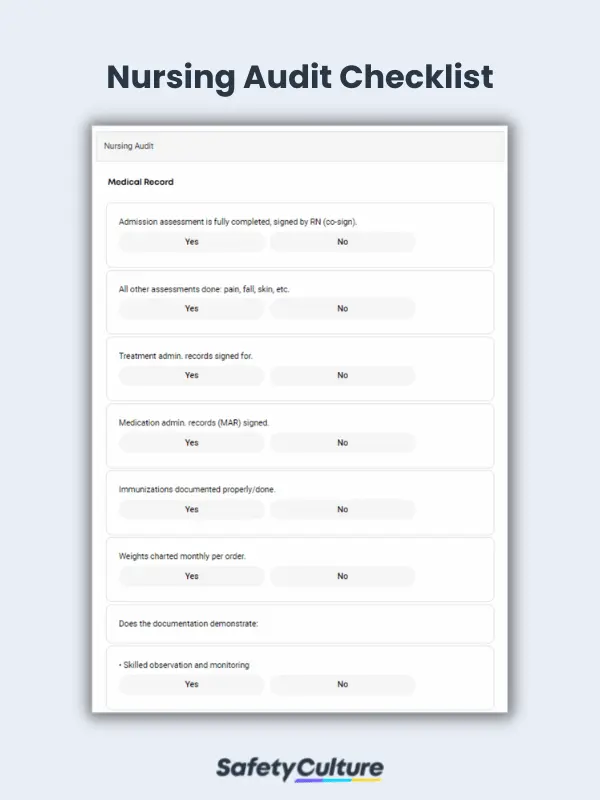What is a Nursing Audit?
Nursing audit is a detailed process of evaluating the quality of nursing care through the review of clinical records made by healthcare professionals. It helps healthcare institutions ensure that patients consistently receive quality patient care and allows nurse managers to determine healthcare improvement opportunities.
What is the Purpose of it?
The purpose of a nursing audit checklist is to assist the head nurse or manager when conducting an audit. It aids nursing heads in determining if patient care is aligned with the healthcare institution’s standards and in reviewing clinical records that can help indicate gaps and areas for improvement in patient care.
Two Methods
- Concurrent Nursing Audit
This nursing audit method is conducted while the patient is currently undergoing treatment at the healthcare facility. It involves staff interviews and patient assessment in addition to the review of the patient’s records. - Retrospective Nursing Audit
This type of nursing audit is conducted after the discharge of the patient from the healthcare facility wherein the auditor determines the quality of patient care based on clinical records.
5 Steps for Conducting an Audit
- Create an audit team composed of senior nurses and other members who will be impartial auditors.
- Get the buy-in of healthcare staff. Help them understand the goal of the audit and the benefit to the patients, staff, and the healthcare institution.
- Determine the type of nursing audit method and proceed with the nursing audit using technology that can help measure the nursing audit result and analyze the information gathered.
- Review and analyze the data gathered to determine if the patient care being provided is at par with the healthcare institution’s standards.
- Promote best practices and maintain quality patient care by conducting internal audits and addressing gaps found.
FAQs About Nursing Audit
Audits in healthcare are used as an improvement method that determines if the quality of care provided to patients is according to a set standard. Healthcare audits usually include a review of outcomes, processes, structures, and other important factors in delivering quality care.
Healthcare audits are important because they enable healthcare providers, institutions, and facilities to proactively identify deficiencies and areas for improvement in the care that they deliver. Audits allow them to address such issues before they further impact patients, and overall, enhance the services that they do for patients.
The types of audits typically used for quality improvement in nursing are:
- Outcome audit: This is used to determine the effects of the care provided by nurse staff since health results are, quite directly, tied to the quality of care that was given.
- Process audit: As the name suggests, this is focused on the processes and tasks involved in delivering the care, how were they fulfilled, and if they are at par with the standards.
- Structure audit: Structure audit prioritizes the setup in which patients are cared for. It also emphasizes the importance of other factors involved in providing nursing care such as service, environment, and finances.


